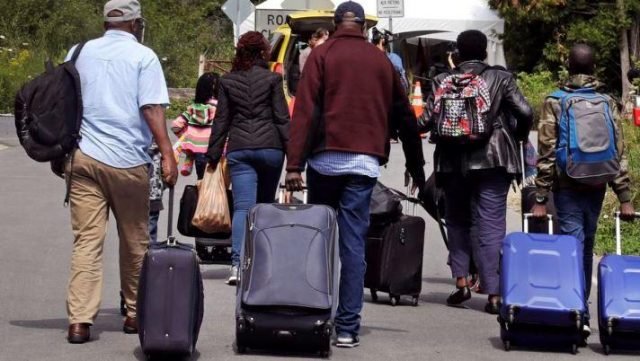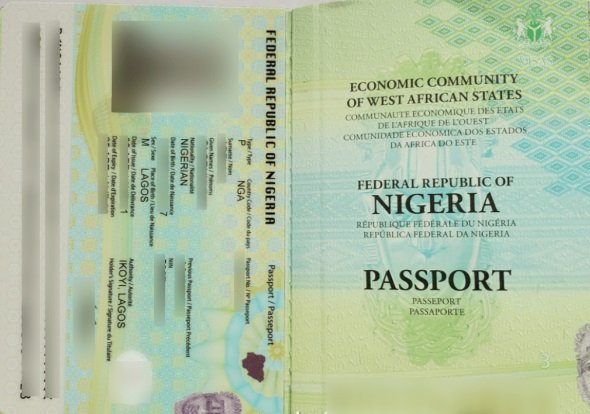Concerns have been voiced, especially by Nigerian students, about the recent changes to immigration laws in France, the UK, and Canada in light of the increasingly changing global setting.
Recently, France followed the UK and Canada in enforcing strict immigration laws that have an impact on international students and change the nature of studying abroad.
The complexities of these modifications, their effects on Nigerian students, and the evolution of immigration laws are all covered in this blog post.
The Immigration Laws in France and Their Effect
The recent adoption of new immigration legislation by the French parliament marks a dramatic change in the nation’s immigration policy.
The law delays the receipt of social assistance and makes it more difficult for immigrants, particularly Nigerians, to bring their families to France.
A controversial provision in the law affects social benefit eligibility by discriminating between citizens and migrants, regardless of their status as permanent residents.
Reorganizing Curriculum Frameworks in the UK
France’s new immigration policy adds another level of complexity for Nigerian students, much to the UK’s move in May to place limitations on international students.
The UK government imposed a no-dependant ban on international students in response to a spike in net migration.
Nigerian students, who have historically made up a significant portion of the international student population in the UK, were encouraged by this move to look into other choices, with France emerging as a prominent competitor.
The alternatives open to these students are further limited by the recent changes in France.
The Skilled Worker Visa Route’s Changing Dynamics
In the UK, the alternative path of obtaining a skilled worker visa—which is frequently seen as an appealing replacement for student visas—has undergone changes.
In December, Home Secretary James Cleverly made changes that increased the minimum wage needed to be qualified for a skilled worker visa.
Cleverly raised the NHS surcharge by 66 percent and placed restrictions on family dependents, while excluding health and social care staff.
The goal of these adjustments is to guarantee immigrants’ ability to provide for their dependents.
Canada’s Economic Challenges and Employment Prospects
Notable changes have also been made to Canada’s immigration laws. International students, including those from Nigeria, would need to provide proof of money for ₦16,050,000.0000 ($20,000) as of January 2024, which is more than twice the amount required in the early 2000s.
The Canadian government has decided to relax the 20-hour work-week cap for international students until April 30, 2024, despite this financial obstacle.
There is some respite for students already in Canada with this extension.
How do the new immigration regulations affect Nigerian students, and why did France implement them?
As part of a larger initiative to tighten its immigration policy, France recently implemented new immigration regulations.
The law intends to make it more difficult for immigrants, particularly those from Nigeria, to bring their families to France.
The law also creates delays in receiving welfare assistance.
A contentious clause in the law discriminates against immigrants and citizens and affects social benefit eligibility regardless of residency status.
This change presents serious difficulties for Nigerian students thinking about studying in France.
What factors drove the United Kingdom to decide to restrict the admission of foreign students, and what impact does this have on the academic plans of Nigerian students?
In reaction to a spike in net migration, the UK government limited foreign students, particularly those from Nigeria.
The UK restricted international students’ ability to bring family members in May by adopting a no-dependant policy.
Nigerian students, who historically made up a sizable portion of the international student population in the UK, began looking into other possibilities.
Although it was thought that France would be a good alternative, recent changes to the country’s immigration laws have added another level of complexity and reduced the possibilities available to Nigerian students.
What effects has the UK’s new skilled worker visa program had on immigrants—including Nigerians—and how has it changed?
The UK’s skilled worker visa program, which was formerly thought to be a desirable substitute for student visas, is no longer available.
In December, Home Secretary James Cleverly made changes that increased the minimum wage needed to qualify for a skilled worker visa.
Limitations on family dependents were imposed, however social workers and health care providers were excluded.
Additionally, there was a 66% increase in the NHS surcharge. These modifications are intended to make it harder for immigrants—including Nigerians—to financially support their families, making the skilled worker pathway more difficult.
How does this affect Nigerians who intend to study in Canada and What are the new financial criteria for international students in Canada?
Canada will be implementing additional financial restrictions for overseas students, including Nigerians, as of January 2024.
It is currently required to provide proof of finances for ₦16,050,000.0000 ($20,000), which is more than twice the amount that was required in the early 2000s.
For aspiring Nigerian students, this significant increase presents a financial challenge.
However, to give some relief to students who are already enrolled in the nation, the Canadian government has decided to prolong the waiver of the 20-hour work week cap until April 30, 2024.
What are the best ways for potential Nigerian students to deal with the changing immigration laws in France, the UK, and Canada?
Considering the current state of immigration, prospective Nigerian students should review their course of study.
This entails keeping abreast of the particular prerequisites and limitations in each nation.
They could look at other options, such as skilled worker visas, or carefully weigh the costs and benefits of studying in Canada.
Strategic preparation, perseverance, and knowledge of the changing policies in France, the UK, and Canada are necessary for overcoming these obstacles
Tightening Regulations on Nigerian Students in France, the UK, and Canada
Finally, Nigerian students who choose to continue their education abroad face major challenges due to France’s stricter immigration laws, which are combined with comparable measures in the UK and Canada.
Reexamining educational plans is necessary in light of the limitations on family reunification, the tightening of financial requirements, and the modifications made to skilled worker visas.
Future students will face challenges handling the fluctuating global immigration policy situation with resiliency and strategic planning.
It is essential to stay current on requirements as they change, as this will enable students to make well-informed choices and facilitate a more seamless transition to studying abroad in these challenging times.





